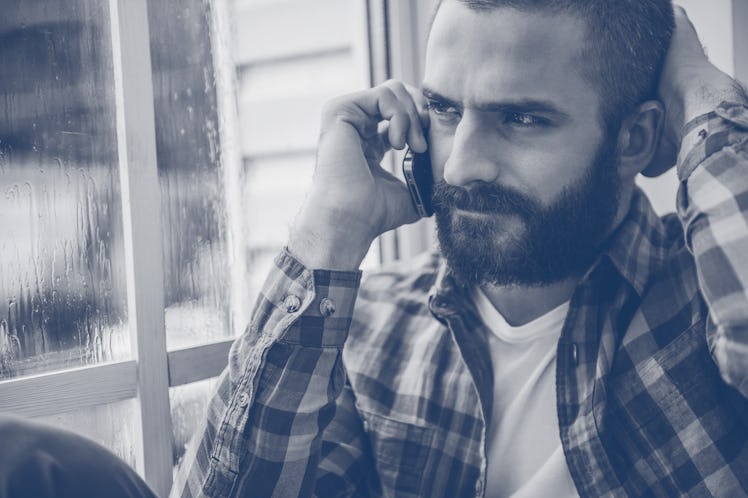What Is 988? New National Hotline Launches For Mental Distress
A new national hotline number has been launched to aid people who are experiencing mental distress.

A new national hotline aims to aid people who are experiencing mental distress. The hotline will use existing services across the country to direct people experiencing a mental health crisis to support and resources. The hotline, which is now available for use, will have the three-digit number 988. Here's what you need to know.
What will the new 988 hotline do?
On July 14, the Federal Communications Commission voted to designate 988 as the nationwide emergency number for suicide prevention. Calling the three-digit number will connect callers to the existing National Suicide Prevention Lifeline. It will be available nationally on July 16.
Anyone in the United States can call or text 988 to be connected to trained counselors who can offer support and resources. Counselors can also assess for suicide risk and offer health service referrals or engage the necessary emergency services if needed.
Why was the national hotline revamped?
The new 988 hotline will connect callers to the existing National Suicide Prevention Lifeline, which has been in place since 2004. The new number revamp is modeled after 911, with the hope that the easier-to-remember line will allow more people in crisis to remember the resource is available and how to contact it. The lifeline’s old 1-800 number will continue to be supported, too.
"It’s a new number, but it’s not a new service,” said John Draper, the executive director of the Lifeline and an executive with Vibrant Emotional Health, a New York-based nonprofit that administers the lifeline, told the New York Times.
Advocates hope the new hotline will make mental health care safer for everyone.
The new number is meant to provide a more straightforward way to get emergency mental health care. But advocates also see the number change as an opportunity to make mental health care and the medical system more accessible and safer for everyone.
"Unlike other medical emergencies, mental health crises overwhelmingly result in a law enforcement response," psychologist Benjamin Miller, president of Well Being Trust, tells NPR. "If you look at the data from the police, about 20% of their total staff time is spent responding and transporting individuals who are experiencing a mental health crisis."
Who should use the new 988 hotline?
With the change in number, advocates hope it clarifies that the support line is for any mental health issues, not just suicidal ideation. Counselors are trained to support and offer resources for various mental health situations, including suicidal ideation, trauma processing, addiction, and self-harm.
The hotline is also available for people hoping to find out how they can help a friend or loved one. Counselors can direct callers to support and offer guidance on supporting someone struggling with their mental health.
Some states have voiced concern over the funding for the hotline.
As states prepare for the launch of the new three-digit number on the 16th, many state health officials have voiced concern that funding and staffing the line may quickly become a problem. Congress passed a law in 2020 to fund the 988 hotline, per Politico, but only received the money allotted for this year.
Totaling $282 million, it sounds like a lot of money, and it’s 10 times more than the hotline’s $24 million budget last year. But the goal is to eventually have each state fund the hotline by levying telecommunications fees.
As some people have pointed out, the program is not expected to hit the road smoothly. The goal is to perfect the hotline in the same way 911 came to be.
If you or someone you know is experiencing suicidal thoughts, call the National Suicide Prevention Hotline at 988 or 1-800-273-8255 or text HOME to the Crisis Text Line at 741741. You can also reach out to the Trans Lifeline at 1-877-565-8860, the Trevor Lifeline at 1-866-488-7386, or to your local suicide crisis center.